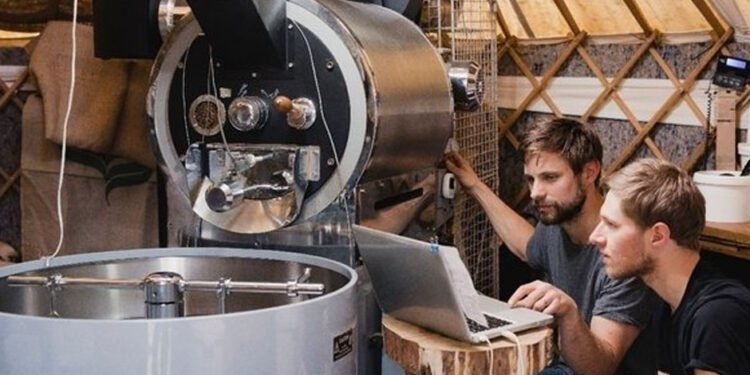Key Takeaways
- Used coffee roasting machines can be a cost-effective investment for small cafes.
- Owning a roasting machine offers greater control over coffee quality and taste.
- Environmental benefits are associated with using pre-owned roasting equipment.
Benefits of Investing in Used Coffee Roasting Machines
Investing in a Coffee Roaster Machine can be transformative for small cafes looking to streamline their coffee production. These cost-effective and versatile machines allow cafes to customize their coffee offerings to suit diverse consumer palates. The tactile experience of fresh roasting also enhances the authenticity of a cafe’s brand, showing commitment to quality at every step. In today’s complex coffee market, where consumers are often overwhelmed by choices, providing a unique in-house roast can set a cafe apart.
The savings from purchasing a used machine allow small cafes to invest in other critical areas, such as staff training or interior decor, which can enhance the overall customer experience. Furthermore, used machines often come equipped with the charm of their operational history, adding a layer of narrative that can enrich a cafe’s brand’s storytelling. Thus, purchasing a secondhand coffee roaster is not merely a budgetary one but also a strategic move to enhance market presence and customer engagement.
Enhancing Quality Control
One key advantage of owning a coffee roasting machine is the control it gives over the final product. The ability to dictate roasting times and temperatures means cafes can develop unique flavor profiles that distinguish their brews from competitors. As noted by scientific studies, even minor adjustments in the roasting process can dramatically affect the taste, aroma, and even the nutritional content of coffee. This opens the door for cafes to tailor their products to niche markets, like single-origin enthusiasts or those seeking low-acidity blends.
In addition to flavor control, there is the added advantage of freshness. By roasting beans on-site, cafes can ensure their coffee is always fresh, a critical selling point for discerning customers. The sensory journey of coffee, from sight to smell to taste, is significantly heightened when freshness is prioritized. This attention to quality can greatly enhance a cafe’s reputation and customer loyalty, as regular patrons return for the consistency and excellence of the coffee experience.
Positive Environmental Impact
Using pre-owned coffee roasting machines aligns with sustainable business practices by extending equipment lifecycles and reducing waste. This practice is consistent with the principles of a circular economy, an approach crucial for industries looking to minimize their environmental impact. In a time when customers are growing more environmentally conscious, showcasing a dedication to sustainability may significantly raise a cafe’s marketability.
Moreover, sustainability continues beyond the product level. By opting for used machines, cafes can reduce their carbon footprint associated with manufacturing new units. This choice is environmentally responsible. It may also qualify the business for specific green certifications or initiatives, further promoting its eco-friendly ethos among customers and the community.
Maintenance and Upkeep
Proper maintenance is essential for secondhand coffee roasting equipment to last a long time. Establishing a routine for regular cleanings and inspections helps avoid unexpected breakdowns that disrupt daily operations. Cafe owners should also be acquainted with basic troubleshooting to handle minor issues promptly, minimizing downtime and maintaining business continuity.
Moreover, forging a relationship with a reliable technician for periodic servicing can significantly extend the machine’s lifespan. Regular maintenance ensures the roaster runs efficiently and produces coffee at the desired quality level, safeguarding the cafe’s reputation for excellence.












